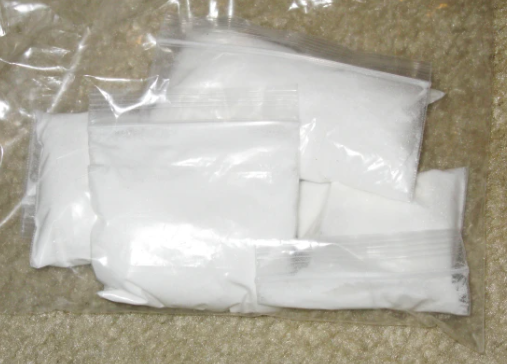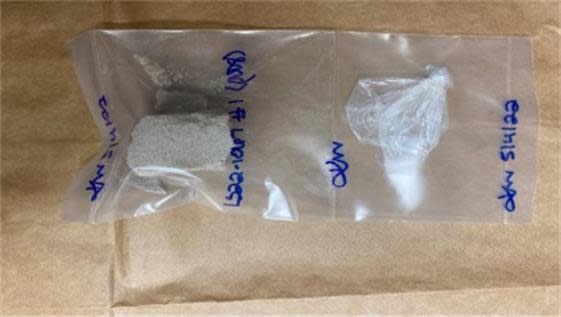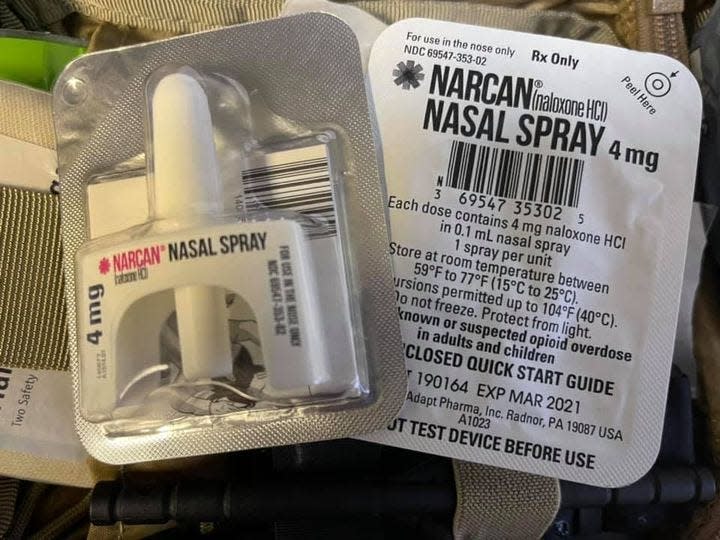County ‘cautious’ about spending $2.5 million in opioid settlement funds
HILLSDALE COUNTY — Hillsdale County is tentatively scheduled to receive an additional $225,894 in Opioid Settlement Funds in 2024 bringing the county’s total share to date to $541,888.
Hillsdale County will receive a total of $2,505,718.61 in Opioid Settlement Funding with annual installments anticipated for the next 15 years.
And yet, despite a widespread drug problem in the county, the Hillsdale County Board of Commissioners has only appropriated $52,439.33 of that funding to purchase all new automatic external defibrillators and trauma kits which included the life-saving drug Naloxone (Narcan) which were placed in county-owned buildings and sheriff’s patrol vehicles.
County employees have also been subjected to CPR training, Stop the Bleed training and have now been trained on how to administer Naloxone in the event of an overdose occurring within a county-owned building, Commissioner Brad Benzing said.

“An opioid overdose may cause depression in the respiratory system and cause a victim to stop breathing,” Benzing, a firefighter and advanced emergency medical technician by trade, explained. “Respiratory arrest leads to cardiac arrest. We wanted our employees to be trained to appropriately respond in that event and provide assistance until EMS can arrive.”
While the Opioid Settlement Funds are mostly restricted on how they can be used — mainly to treat all aspects of opioid-based addictions and prevention works — a small percentage of the funds can be applied to other uses by a county, Benzing explained.
On Tuesday, Jan. 9, 1st Judicial Circuit Judge Sara S. Lisznyai pleaded with the commissioners to appropriate some of the funding to supplement grant funding she has received to start a Community Corrections Advisory program, aimed at providing pre-trial screening and programs to help those charged with a crime before their cases have even been adjudicated.
The commissioners took issue with this request, cautioned by the limitations placed on Opioid Settlement Funding (laid out in “Exhibit E” included in most opioid settlements) before nixing the question entirely.
“The issue seems to be that we can't use opioid funds to supplant grant funds,” Benzing explained. “We have been cautioned (by the Michigan Association of Counties) that the Community Corrections request appears to do that. The problem appears to be where the primary funding for the community corrections program comes from.”
Benzing added that the commissioners are proceeding with “significant caution in our expenditures at this point.”
“If anything, we want to get a feel for what is deemed allowable and what is not from what other counties are doing,” Benzing said. “We don't have the funds to make mistakes and have to pay them back out of the general fund.”
More: Overdose prompts police, EMS presence along popular recreation trail
Monroe County, hit hard by the opioid epidemic, received $5.5 million in Opioid Settle Funds and has held two community programs aimed at educating the public about addiction.
The Lenawee County Board of Commissioners is in preliminary discussions to fund recovery based housing for addicts, according to The Daily Telegram.
On Michigan’s western shores, Ottawa County sued the state of Michigan in January 2023 over how the disbursement of Opioid Settlement Funds was decided.

The first issue raised by Ottawa County was that local governments should not be given funds because they do not administer rehabilitation facilities and the second issue raised was if local government entities are to receive funds, Ottawa County, the seventh largest in the state, should receive more than $2.6 million over 17 years.
Ottawa County, the only municipal government to raise issues with receiving Opioid Settlement Funds in the nation according to The Detroit Free Press, temporarily held up local governments from receiving vital funds to combat the opioid epidemic, Michigan Attorney General Dana Nessel said at the time.
To determine how Hillsdale County’s share will be distributed, the commissioners have established an opioid committee to review requests for funding from the settlement which includes Commissioners Mark Wiley and Brent Leininger, Finance Manager Derek Ringman, Juvenile Court Administrator Tim Dixon and Prevention Works Coordinator Chris Firestone.
More: Opioid panel highlights drug issues
Part of Hillsdale County’s frustration today is rooted in another narcotic: methamphetamine which, at times, is now being laced with fentanyl.
Methamphetamine has a wider grip on addicts in Hillsdale County and Hillsdale County Prosecutor Neal Brady recently described it as “the root of all evil.”
Lisznyai, in a recent Community Corrections Advisory Board meeting, announced that 93-percent of all felony cases that come before her have an underlying substance abuse issue involving methamphetamine.
More: Drugs have huge impact on small community
The day before she came to the commissioners Jan. 9 with her funding request, Lisznyai took 12 felony pleas that included methamphetamine abuse.
“Meth is definitely more popular right now,” said Det. Lt. Sean Street, the Region of Irish Hills Narcotics Office task force commander.
But, Street cautioned, there is “fentanyl in everything.”

Unbeknownst addicts purchasing methamphetamine have overdosed in Hillsdale County after consuming methamphetamine laced with fentanyl, an opioid-based synthetic narcotic more deadly than heroin.
“It (fentanyl) is king as far as (overdose) deaths go,” Street said. “It’s a big issue.”
Benzing concurred saying that while methamphetamine is a larger problem in Hillsdale County, synthetic opioids, such as fentanyl, are becoming more common.
The county's opioid committee met Wednesday, Jan. 10, and discussed purchasing a Stop the Bleed trainer's kit to allow for additional training of new county employees or refresher training in the future.
Subscribe Now: For all the latest local developments, breaking news and high school sports content.
The committee has yet to establish a formal plan of how the county can best use its Opioid Settlement Funds to have a positive impact on the drug epidemic gripping Hillsdale County.
Teresa Cole of Hillsdale Township lost a son to drug addiction.
After his death, she struggled to find a way to carry on with life. Organizing "Lost Faces of Fentanyl" — an annual memorial walk to raise awareness about opioid addiction — was a way to memorialize her son and others who died from overdose. It gave her a positive purpose.
Cole believes the county lacks adequate rehabilitation options locally and could benefit from transitional housing — allowable under the Opioid Settlement Funding's approved spending plan — to help addicts fully recover.
— Contact Reporter Corey Murray at cmurray@hillsdale.net or follow him on X, formerly Twitter: @cmurrayHDN.
This article originally appeared on Hillsdale Daily News: County ‘cautious’ about spending $2.5 million opioid settlement funds

